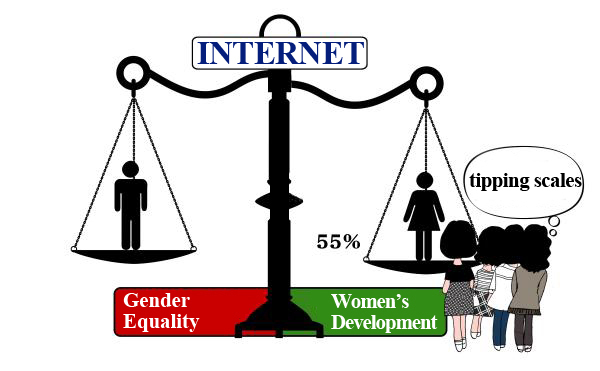Scholars: Gender, women’s studies call for balanced, local perspectives

Female entrepreneurs account for one-quarter of the total number of entrepreneurs, and about 55 percent of new online businesses were founded by women, according to the white paper Gender Equality and Women’s Development in China, issued on Sept. 22.
In 1995, China made the constitutional principle of equality between men and women a basic state policy. It was also the year UN’s fourth World Conference on Women was held in Beijing. Two decades later, the Chinese government published the white paper Gender Equality and Women’s Development in China to provide a comprehensive overview of China’s progress on gender equality and women’s development as advancements are made in society and the economy.
In this light, social concepts of gender have been widely adopted in academia to analyze gender equality. However, some scholars say that studies on social gender theory lack depth and have a hard time finding their rooting in the mainstream.
Past achievements
Jin Yihong, a professor from the Ginling College at Nanjing Normal University, said that in the past 20 years, China has enacted and implemented outlines for the development of women and various laws and regulations in this regard to ensure institutional mechanisms for promoting gender equality and women’s development, striving to live up to international standards.
Liu Xiaojing, vice-dean of Shangdong University of Arts, has been following women’s rights issues for years. She pointed out that a legal system has been in place to effectively safeguard women’s rights of education, marriage and property while the public awareness for women’s rights and gender equality has been growing.
According to the white paper, a marked improvement has been seen in gender equality in marriages and families in China over the past 20 years, and it has become the norm for husbands and wives to jointly make family decisions, and that more than 70 percent of women have taken part in making major family decisions. In the meantime, more and more women can share family resources on an equal basis with men, and the concept of men and women sharing housework is now better accepted.
Gender analysis neglected
All this progress on women’s rights has in turn prompted academic development in gender and women’s studies. However, the discipline is still relatively marginalized.
In a sense, all research in social sciences needs observation and examination from the perspective of gender, but past analysis on social historical phenomena seems to turn a blind eye to that, Jin said.
“Traditional sociology studies focus more on structure and system, whereas gender analysis is often left out or even considered pointless,” Jin noted.
On the other hand, local experience and research are undermined when it comes to social gender and women’s studies, said Tong Xin, a professor of sociology at Peking University.
Tong said that when researchers conduct reflection and criticism in the matter, they tend to quote Western theories, rather than looking deeply into local gender culture and experience.
Jin said Western feminist theories and activities have a huge impact on Chinese gender studies because they provide a new perspective. But under the Western influence, there is a tendency to underscore the localization of theories regarding women’s studies, Jin added.
Fortunately, the emphasis on local gender culture and women’s experiences has been enhanced, which is beneficial to academic exchanges with the West, Jin said.
Valuing local experience, studies
To break the bottleneck of gender studies in China, Tong suggests that previous women’s and gender study theories need to be summarized in a systematic manner.
In addition, it’s important to include more male scholars in the study because their absence makes the study a monologue due to lack of communication and engagement of both genders, Tong said.
During the May Fourth Movement, a group of male scholars were active in criticizing the traditional gender culture, but they appear to have toned down their commentary over the years, and we need to reflect on this abnormal phenomenon, Tong said.
Finally, social gender studies need to strengthen the link between theory and practice, Jin said. Though many frontline social work practitioners have carried out a number of surveys, an insufficient awareness of relevant theories hinders them in future research.
Zhang Jie is a reporter at the Chinese Social Sciences Today.

 PRINT
PRINT CLOSE
CLOSE